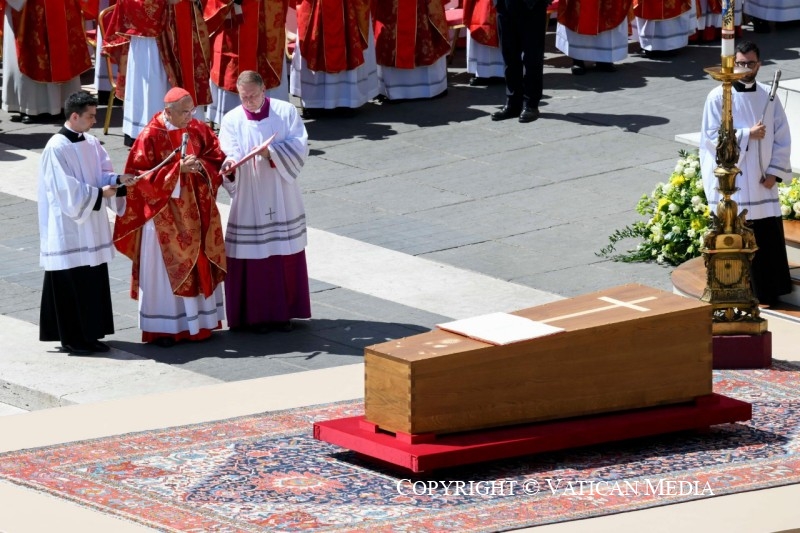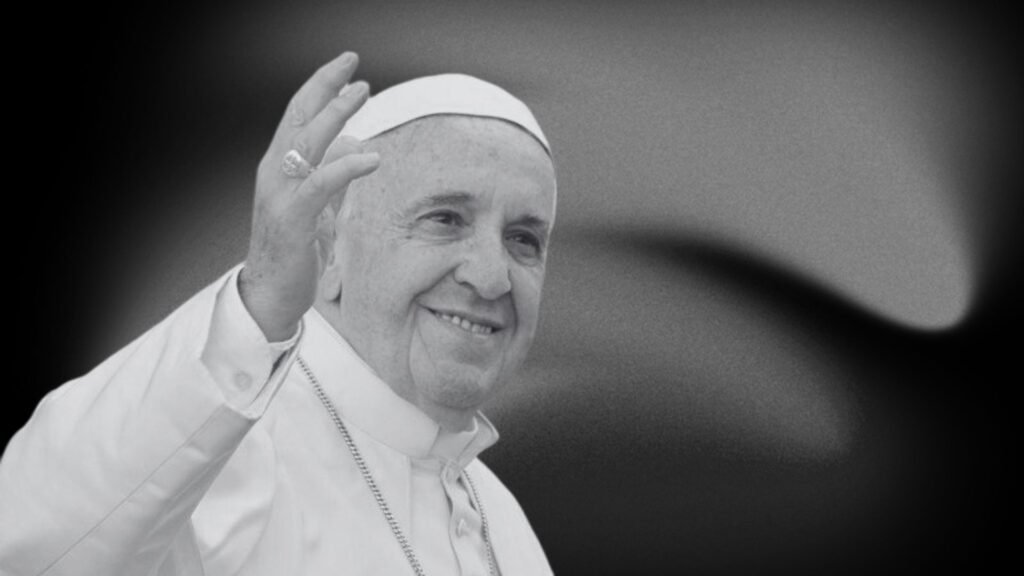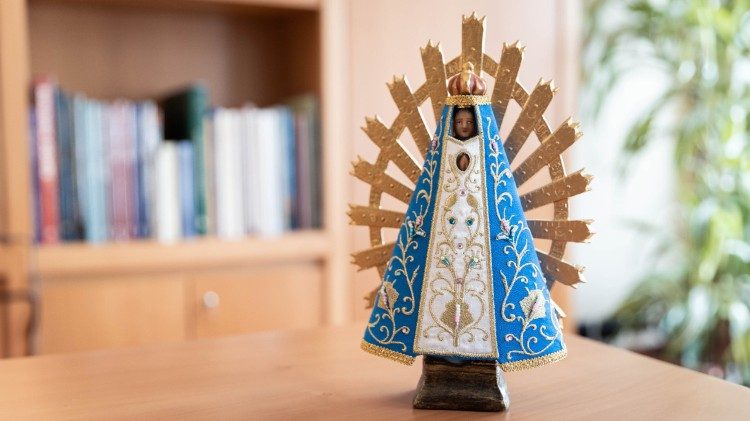Pope Presents Gift to Seminary of Košice
Sculpture of Saint Joseph

Pope Francis today gave a sculpture of Saint Joseph to the Seminary of Košice.
The presentation of the statue at the seminary took place between the celebration of the Byzantine Divine Liturgy of Saint John Chrysostom Presided by the Holy Father at Mestská Športova hala in Prešov and the Pope’s visit to the Roma Community of Košice. Francis stopped at the seminary to greet the students and faculty — and perhaps grab a bite to eat.
Although it belongs to the modern artistic production of religious artifacts, this sculpture of Saint Joseph is not only based on nineteenth-century styles but faithfully respects the iconography of the “silent guardian” of Our Lord, who two thousand years ago, as the “spouse of Mary”, was part of a very special family: the Holy Family.
Indeed, it was within the Holy Family that he witnessed the birth of Jesus, held Him in his arms, defended Him from those who wanted to kill him, provided for His upbringing, filled Him with affection, and taught Him religious principles. For these reasons, therefore, not only is Saint Joseph “the greatest saint and the most powerful intercessor we have in heaven, after the Virgin Mary”, but for this very reason on December 8, 1870, Blessed Pius IX decreed that he be recognized as Patron of the Universal Church.
Looking closely at this sculpture, we see first of all that Saint Joseph “holds” the little Salvator Mundi, in the act of blessing, in his left hand, while in his right he holds the rod that miraculously bloomed with lilies when the priests of the Temple of Jerusalem had to choose Mary’s spouse from among the bachelors of the tribe of Judah. On that occasion, in fact, although he had remained humbly at the back of the group of young suitors because he was already a widower, the high priest Abiathar cried out to him: “Come and take your rod, for it is you who are expected”!
Saint Joseph’s humility is certainly not lost on this sculpture either, since the position of his face, leaning slightly forward, denotes not only a deferential attitude towards the Son of whom he is only a “putative father”, but also shows the importance of his “silence”.
St Joseph, in fact, is the one who humbly “dreams, meditates, nods and executes”. And he carries out God’s will with such humble silence that we do not find a single sentence of his in the Gospels so that we can simply refer to him as the “silent guardian of the Redeemer”. A “guardian” to whom God reveals His mission exclusively in dreams, so much so that the evangelist Matthew himself (1:18-24) writes: “When Joseph awoke from sleep, he did as the angel had commanded him”, without speaking.
On more than one occasion Pope Francis, who is a fervent devotee of Saint Joseph – so much so that, when he was elected to the See of Peter on 13 March 2013, he wished to celebrate the beginning of his Petrine Ministry on the day of his Solemnity – has indicated the putative father of Our Lord as he who knows “how to walk in the dark”, as he who knows “how to listen to the voice of God”, and as he who knows “how to go on in silence”, even going so far as to explain the importance of his dreams.
Indeed, the Holy Father says, “In dreams, we are a little freer, we free ourselves … and in dreams, many things come up from our subconscious, things are revealed that we do not understand clearly in our life or our memories. The dream is a special place for searching for the truth because there we do not defend ourselves against the truth”. Saint Joseph, therefore, was “the man of dreams, but he was not a dreamer”. Saint Joseph “had his feet on the ground … and he let the word of God come true there, in his dream, in his freedom, in his open heart. He understood and carried that dream forward. Without fantasy … because he was not a dreamer, he was a practical man”.
And what can this teach humanity, if not that we should not “lose the ability to dream of the future”? Indeed, everyone should “dream as young people dream, they are ‘without shame’ in dreaming, and there they find a way. Do not lose the ability to dream, because to dream is to open the doors to the future. To be fruitful in the future”. A future, of course, in which we can genuinely live in peace and fraternity.
To Saint Joseph, in fact, we can but ask for “the grace of knowing how to dream, always seeking God’s will in dreams, and also the grace of accompanying in silence, without idle chatter”.
Related

Mercy and the joy of the Gospel are two key concepts of Pope Francis
Exaudi Staff
26 April, 2025
9 min

Thousands of faithful bid farewell to Pope Francis in St. Peter’s Square
Exaudi Staff
26 April, 2025
2 min

Saying Goodbye to Francis
Exaudi Staff
26 April, 2025
2 min

Pope Francis Gifts a Statue of Our Lady of Luján to Gemelli and the Catholic University of the Sacred Heart
Exaudi Staff
25 April, 2025
2 min
 (EN)
(EN)
 (ES)
(ES)
 (IT)
(IT)

